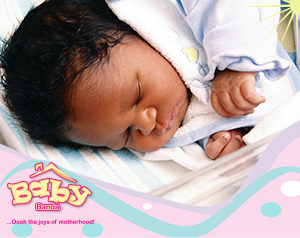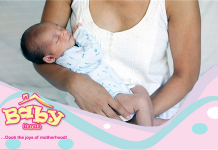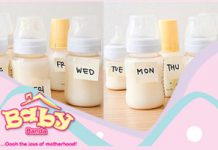Feeding your baby can be stressful. You may have questions like, ‘how will I know my baby is hungry?’, ‘When do I feed my baby? and so on. To get answers to these questions, you have to check the cues your baby gives which lets you know whether they are hungry or not. Wondering how to identify these signals?
Below is a list of baby hunger cues you should look for:
Early Hunger cues
- Smacking or licking lips
- Sticking the tongue out
- Opening and closing the mouth
- Sucking on toes, fingers, clothes, lips, and toys
- Moving head from side to side. This movement is a natural reflex. You may note that when you stroke your little one’s cheek, they turn towards the breast or feeding bottle.
Active Hunger Cues
- Increased physical movement
- Making whining sounds
- Fussing
- Squirming
- Hitting on your chest or arm constantly
- Pulling on your clothes to try getting into a feeding position
- Turning head towards the chest (when carried)
- Waking up from sleep
Your little one might show interest in sucking even after finishing the first breast indicating that they want more. Some babies older than four months may smile while breastfeeding, an indication that they want to continue.
Late Hunger Cues
- Moving the head frantically from one side to the other
- Crying. This is the last sign and it’s usually low-pitched.
Why follow Hunger Cues
It is recommended to check for hunger cues your little one gives instead of feeding them randomly. This can help you:
- Get to know your baby well and respond in time
- Ensure smooth feeding without forcing your baby or extending feeding time
- Forge trust between you and your baby as you understand them better
- Give your body enough time to produce and maintain good milk supply
- Build your confidence which can enhance your relationship with your little one
Not sure if your baby is hungry?
If you are unsure that your baby is hungry, try to feed them. Breastfeeding is highly recommended as it allows your baby to feed if they are hungry and gives them comfort. It also helps in breast milk production and maintains a good supply.
Checking whether your baby is hungry is not harmful. It won’t create any bad feeding habits or affect your baby’s schedule. Additionally, trying to breastfeed won’t make your baby dependent when you are around or cause problems when weaning them.
How to Know Your Baby is full
Babies know when they’re content and give cues to let you know that. Often, they turn their head away from the feeding bottle or breast when they are full. A common cue is a baby falling asleep while breastfeeding. Babies older than 4 months may push away the bottle or breast and start looking around since their hunger/thirst has been satisfied.
Getting a better understanding of your baby’s hunger cues is not only important for you but also them. Random feeding can confuse your baby and lead them not to eat enough or eat more than recommended. By building trust, your baby can understand that you know when they need to feed, and when they don’t.













